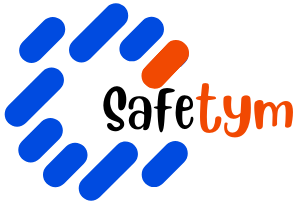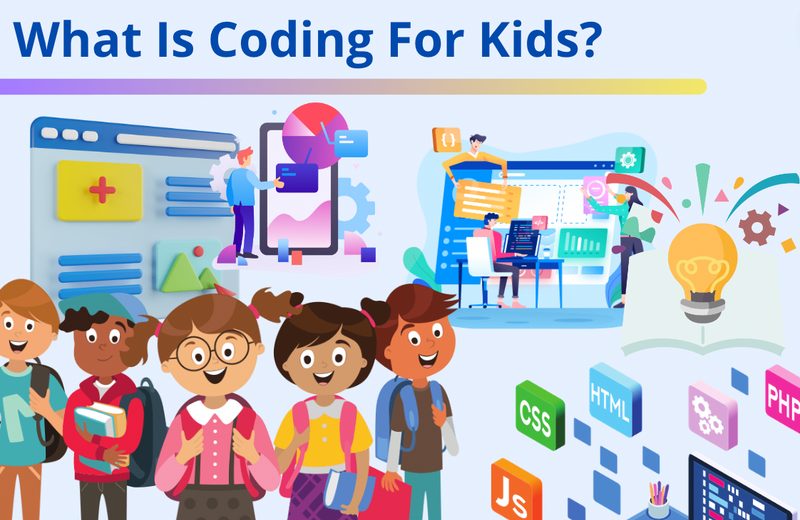In today’s increasingly digital world, coding has become an essential skill for everyone, including children. Learning to code not only prepares children for the future of work but also provides them with a variety of cognitive benefits.
Coding is not just a skill for programmers or computer scientists. It is a creative and logical way of thinking that can benefit anyone, especially children. Coding can help children develop problem-solving skills, critical thinking, creativity, and confidence.
It can also prepare them for the future, as coding is becoming more and more essential in many fields and industries.
Here are some of the top reasons why your child should learn how to code:
1. Coding Fosters Problem-Solving Skills
Coding involves breaking down complex tasks into smaller and simpler steps and finding solutions to challenges and errors. This process teaches children how to think logically, analytically, and systematically.
It also encourages them to persevere and learn from their mistakes.
2. Coding Enhances Creativity and Innovation
Coding is not just about following instructions; it’s also about creating new things. Coding allows children to express their ideas and imagination in a tangible way. They can create their own games, animations, stories, or apps using code. They can also experiment with different features, designs, and functions, and see the results of their changes instantly.
As children learn to code, they develop their creativity and innovation skills. They experiment with different ideas, explore various solutions, and find unique ways to express themselves through code.
3. Coding Improves Computational Thinking
Computational thinking is the ability to break down problems, identify patterns, and design solutions using algorithms. Coding provides a hands-on approach to developing computational thinking skills, which are essential for understanding and navigating our increasingly technology-driven world.
4. Coding Prepares Children for Future Careers
Coding is becoming an increasingly important skill in the job market. As technology continues to advance, there is a growing demand for workers with coding skills. Learning to code can give your child a competitive edge in the job market and open up a wide range of career opportunities.
5. Coding Promotes Digital Literacy
In today’s digital world, it’s essential for children to be digitally literate. Coding helps them understand how computers work, how to evaluate online information, and how to protect their privacy online.
6. Coding Enhances Math Skills
Coding and math are closely related. The concepts of variables, loops, and algorithms are all based on mathematical principles. Learning to code can help children develop a deeper understanding of math concepts and improve their math skills.
7. Coding Boosts Confidence
As children learn to code and create their own programs, they experience a sense of accomplishment and boost their confidence. This newfound confidence can spill over into other areas of their lives, such as academics and social interactions.
Coding gives children a sense of accomplishment and pride when they complete a project or solve a problem. It also helps them overcome their fear of failure and embrace trial and error as part of learning.
Coding can also empower children to become creators rather than consumers of technology, and to share their work with others.
8. Coding Encourages Lifelong Learning
The world of technology is constantly evolving, and there is always something new to learn. Coding instills a love of learning and encourages children to become lifelong learners, which will be valuable throughout their lives.
9. Coding Prepares Children for the Future
Coding is not only a valuable skill in itself, but also a foundation for learning other subjects and skills. Coding can help children understand math, science, art, and language better, as they can apply coding concepts to these domains. Coding can also expose children to various career opportunities and fields that require coding, such as engineering, robotics, medicine, design, and more.
Resources and Tools for Teaching Your Child How To Code
There are many online platforms and apps that can help you introduce your child to coding in a fun and engaging way. Here are some of the most popular ones:
- Scratch: Scratch is a free online platform that allows children to create interactive stories, games, and animations using drag-and-drop blocks of code. Scratch is suitable for children aged 8 and above, and has a large online community where children can share their projects and get feedback.
- Code.org: Code.org is a nonprofit organization that provides free online courses and activities for children of all ages and levels to learn computer science and coding. Code.org also organizes the annual Hour of Code event, which aims to introduce millions of students to coding in one hour.
- Tynker: Tynker is an online platform that offers self-paced courses and games for children to learn coding using visual programming languages such as Blockly and Python. Tynker is designed for children aged 5 and above, and covers topics such as game design, robotics, animation, web development, and more.
- CodeSpark Academy: CodeSpark Academy is an app that teaches children aged 5 to 9 the basics of coding through interactive games and puzzles. CodeSpark Academy uses a word-free interface that makes it accessible for pre-readers and non-English speakers. CodeSpark Academy also features a creative mode where children can build their own games and stories using code.




